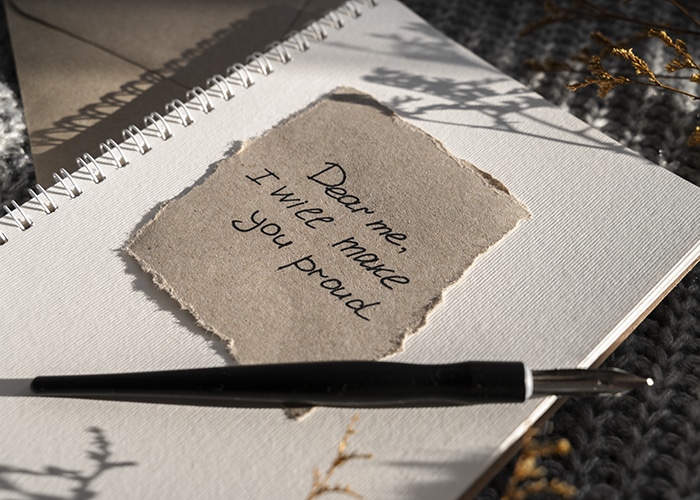Breaking free from emotional dependency on someone can be a challenging but important step towards developing healthy relationships and personal well-being. Here are some steps to help you gradually reduce emotional dependency:
- Self-Awareness: Recognize and admit that you are emotionally dependent on this person. Understand the impact it’s having on your life and well-being.
- Understand the Root: Reflect on why you became emotionally dependent. It could be due to past experiences, insecurities, or a need for validation. Understanding the root cause can help you address it effectively.
- Build a Support Network: Strengthen your relationships with friends, family, and other supportive people in your life. Having a diverse support network can help distribute emotional reliance more evenly.
- Set Boundaries: Establish healthy boundaries with the person you’re dependent on. This might involve limiting contact or being clear about your emotional needs.
- Develop Independence: Focus on your own interests, hobbies, and goals. Engage in activities that bring you joy and help you grow as an individual.
- Self-Care: Prioritize self-care activities that promote your physical, emotional, and mental well-being. This could include exercise, meditation, journaling, or pursuing creative outlets.
- Therapy or Counseling: Consider seeking professional help. Therapists can help you explore the underlying causes of your emotional dependency and provide strategies to overcome it.
- Challenge Negative Thoughts: Work on changing negative thought patterns that feed into your emotional dependency. Cognitive-behavioral techniques can be particularly helpful.
- Practice Mindfulness: Mindfulness techniques can help you become more aware of your emotions and thoughts without judgment. This can provide a better understanding of your emotional dependency.

- Celebrate Progress: Acknowledge even small steps you take towards reducing emotional dependency. Celebrating your progress can boost your self-esteem and motivation.
- Visualize Independence: Imagine a future where you are emotionally independent and happy. This visualization can serve as a motivating goal.
- Give Yourself Time: Breaking emotional dependency is a gradual process. Be patient with yourself and allow time for change to occur.
- Limit Contact: If necessary, reduce the amount of contact you have with the person you’re dependent on. This can help create space for you to develop your independence.
- Focus on Personal Growth: Channel your energy into personal development. Set and pursue goals that are separate from your relationship with this person.
- Remind Yourself of Your Worth: Affirm your self-worth and remind yourself that your happiness shouldn’t solely depend on someone else.
Constantly checking to see if someone has messaged you can be a sign and a behavior of emotional dependency or anxiety. Breaking this habit can help you regain control over your emotions and reduce the impact this behavior has on your well-being.
Here are some strategies to help you stop compulsively checking for messages:
- Set Specific Times
Instead of checking messages impulsively, designate specific times during the day to check for messages. This can help reduce the frequency and give you more control. - Silence Notifications
Turn off notifications for messages or social media apps. This can prevent constant interruptions and reduce the urge to check. - Use Do Not Disturb Mode
Put your phone or device in “Do Not Disturb” mode during certain periods, like work hours or bedtime. This way, you won’t be tempted to check messages constantly. - Replace the Habit
When you feel the urge to check for messages, try replacing that behavior with a healthier activity. It could be taking a short walk, doing a breathing exercise, or focusing on a work task. - Engage in Activities
Keep yourself engaged in activities that require your attention and focus. This will divert your attention from checking messages and help you be more present in the moment. - Mindfulness and Meditation
Practice mindfulness techniques and meditation to become more aware of your impulses and thoughts. This can help you gain better control over your behaviors. - Use App Limits
If you find that certain apps or platforms are contributing to your compulsive checking, use app limits or screen time controls to restrict your access.
- Delete or Move Apps
Consider deleting messaging apps or moving them to less accessible locations on your device’s home screen. This extra step can help break the automatic habit of checking. - Reward Yourself
Create a reward system for yourself when you successfully resist the urge to check messages. This can reinforce positive behavior change. - Practice Patience
Remind yourself that waiting for a message doesn’t define your worth or importance. Practice patience and focus on the present moment. - Address Underlying Emotions
Reflect on why you feel the need to constantly check for messages. Are there underlying emotions such as insecurity or anxiety? Working on these emotions can help reduce the urge to check. - Seek Professional Help
If the urge to check messages becomes overwhelming and negatively impacts your daily life, consider seeking support from a therapist or counselor. - Limit Availability
Communicate to others that you might not be available for immediate responses. Setting clear expectations can help reduce the pressure to always be connected. - Practice Gratitude
Focus on the positive aspects of your life that don’t revolve around messages or notifications. Practicing gratitude can shift your perspective.

Remember, breaking a habit takes time and effort. Be patient with yourself and celebrate the small victories along the way. Gradually implementing these strategies can help you regain control over your impulses and reduce the compulsion to constantly check for messages. Breaking emotional dependency takes time and effort. Be gentle with yourself and recognize that setbacks might occur along the way. It’s about progress, not perfection. If you find the process particularly challenging, don’t hesitate to seek support from friends, family, or a mental health professional.

Dr. Yaro Garcia
Hello, I am Dr. Garcia, please call me Yaro. My degrees are in clinical psychology and I am a licensed mental health counselor. My approach is caring, warm, safe, non-judgmental, and straight forward. It is a difficult decision to seek therapy, I take time to build a trusting therapeutic relationship with you…
















